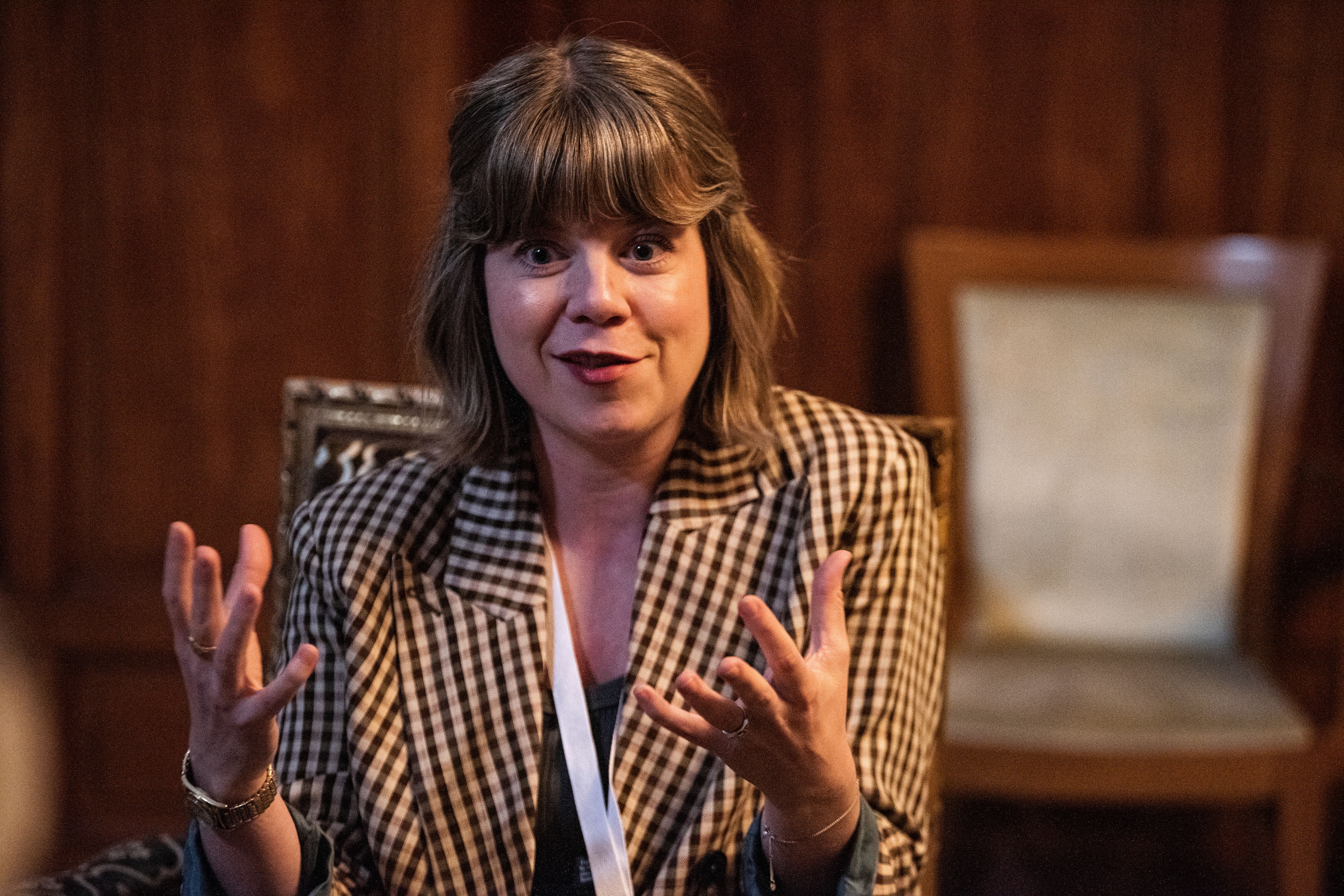Young people need ‘Goldilocks anxiety’ to cope with climate change – expert
There needs to be a balance between feeling strongly enough to take action, but not letting those feelings have a negative impact, a US expert said.

Your support helps us to tell the story
From reproductive rights to climate change to Big Tech, The Independent is on the ground when the story is developing. Whether it's investigating the financials of Elon Musk's pro-Trump PAC or producing our latest documentary, 'The A Word', which shines a light on the American women fighting for reproductive rights, we know how important it is to parse out the facts from the messaging.
At such a critical moment in US history, we need reporters on the ground. Your donation allows us to keep sending journalists to speak to both sides of the story.
The Independent is trusted by Americans across the entire political spectrum. And unlike many other quality news outlets, we choose not to lock Americans out of our reporting and analysis with paywalls. We believe quality journalism should be available to everyone, paid for by those who can afford it.
Your support makes all the difference.Children and young people need to find a “Goldilocks” level of anxiety to cope with climate change, where it does not harm their mental health, but still motivates them to take action, an expert has said.
Young people have often been told that emotions like anxiety or depression are bad, but they are actually very reasonable feelings in the face of the climate crisis, Dr Britt Wray, of Stanford University in America, explained.
She said children should be taught how to handle their emotions in relation to the threat of climate change, and that this should start in the classroom.
If we feel anxiety or depression or what have you, we can judge ourselves for feeling them, but actually, those emotions are perfectly reasonable to feel in this situation
Speaking at the Frontiers Forum in Switzerland, Dr Wray told the PA news agency: “As researchers we’re kind of looking for this ‘Goldilocks’ level of climate anxiety.
“It’s like how can we get not too much but not too little, where we can tap into its potential to increase people’s sense of agency to step out and do something bold to be part of the movement, but not harm their mental health?”
She added: “We should be teaching them (students) climate and environmental science in trauma-informed ways.
“Which means in ways that are accompanied by learning modules and interventions that can help them process and be supported in the difficult emotions that often follow learning about climate change, so students are not alone in their distress, are validated in their concerns, and can also be brought into conversations about active hope and solutions, not just over describing the problem as can often happen and make the eco-anxiety harder to deal with.”
In 2021 the term eco-anxiety made its way into the new edition of the Oxford English Dictionary to describe the unease or apprehension about current and future harm to the environment.
Research suggests young people around the world feel an increasing sense of dread and distress related to climate concerns.
This could lead to anxiety, depression, suicidal thoughts, and some even questioning whether or not they want to have children in the current climate.
However, Dr Britt, a mental health and climate change researcher, explained there are a number of factors that could help young people achieve a balance.
She told PA finding like-minded people can help validate people’s feelings, and make them feel less alone.
“That certainly helps with getting people to that ‘Goldilocks’ state where they can handle it and then ideally channel it into pro environmental actions,” Dr Britt explained.
She continued: “People need to be able to do three things – they need to be able to take actions that are expressions of their values and ways of stepping into agency so that it fights off this feeling of powerlessness and helplessness.
“But they also need to know how to regulate difficult emotions – the big scary ones that most of us have been taught to think are somehow bad.
“If we feel anxiety or depression or what have you, we can judge ourselves for feeling them, but actually, those emotions are perfectly reasonable to feel in this situation.”
According to the researcher, a number of different tools can help young people deal with these feelings, including mindfulness, meditation, spending time in nature, or speaking to climate-aware therapists.
Dr Britt said: “It’s about finding ways to engage with the climate crisis, but not taking on too much and knowing that it’s important to be able to take breaks from it so you can focus on all the other cool things in life and be joyful.”
Data published by the Office for National Statistics last year suggested that around a quarter (74%) of people, aged 16 and older in Great Britain, reported feeling worried about climate change.
According to the Opinions and Lifestyle Survey collected between September 14 and October 9, climate change was the second biggest concern facing adults in Great Britain (74%), with the rising cost of living being the main concern (79%).
While a study published in the The Lancet surveyed 10,000 children and young people (aged 16–25 years) in 10 countries – Australia, Brazil, Finland, France, India, Nigeria, Philippines, Portugal, the UK, and the USA.
It found that eco-anxiety was not limited to rich people in the west, with 59% saying they were very or extremely worried and 84% were at least moderately worried. More than 50% reported each of the following emotions: sad, anxious, angry, powerless, helpless, and guilty.
Some institutions in the UK have already started offering mindfulness courses to help ease the eco-anxiety of their students.
In October last year the University of East Anglia (UEA) announced that it was launching a course of six sessions, one per week and each lasting two hours.